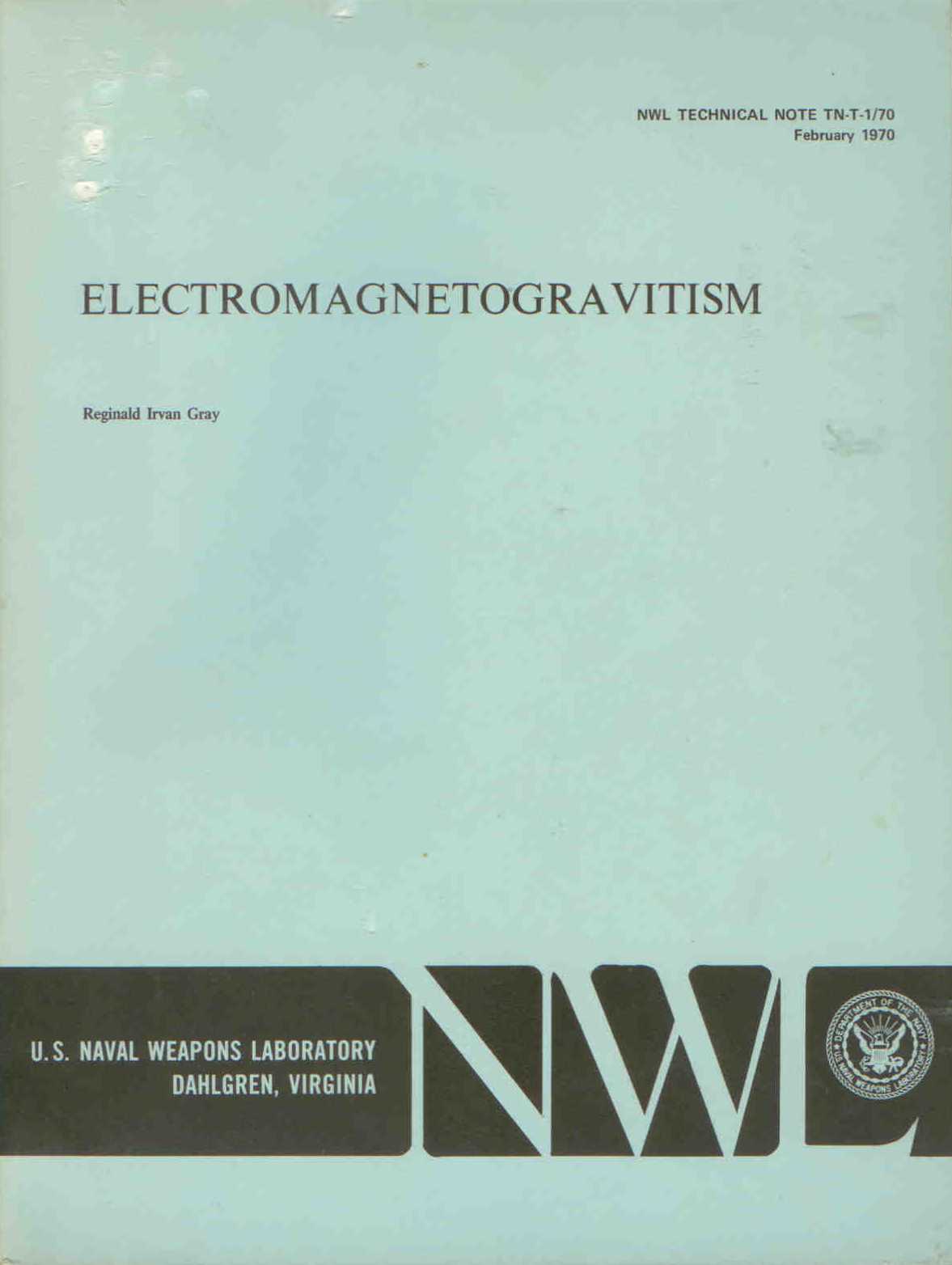-
 (Electrodynamics, Experiments)
(Electrodynamics, Experiments)In Memoriam: Reginald Irvan Gray, O.B.E.
Our little community of independent thinkers has suffered grievous losses of late (one thinks of Carl Zapffe and Charles Hill), and owing to its age composition will suffer more - perhaps to the point of vanishing, since recruitment of the young seems inadequate to keep up our numbers.
If I reveal a mood of depression here, it is because of the recent loss of my good friend, Reginald I. Gray.
In today\'s world of mind stifling consensus among beauty-ridden string theorists and the like, the independent mind is a real anomaly. Amongst the great crowd,is there a Newton in the house? A Faraday? An Ampere, a Helmholtz, a Hertz, a Maxwell? These were all men of restless mind, driven by curiousity about the world around them, even to the point of systematic intervention in that world - the process known as \"experiment\".
Reg was an experimenter. He was quite unlike the great crowd, most of whom seem more curious about the world within that about the nature around them.
Reg was also an officially recognized Hero - an R.A.F. Group Captain does not receive the Order of the British Empire without having at least lightly indulged in heroism of some kind. He was an unlikely sort for this part, being one of the most modest people I have ever known. He never talked in my presence about his wartime experiances as one of \"the few\". Anyway, after \"the war\" (the only one that my generation admits to such status), he came to this country and worked for the U.S. Navy in one of its Labs, where I got to know him in the lates 60\'s. It was clear then that he had long since joined the other \"few\" - the few who are genuinely curious about nature. He was doing beautifully-crafted experiments aimed at deep-lying targets such as neutrino presence in the vaccum, finite mass of photons, etc. At first he did these experiments entirely on his own initiative, and only later did he pursue them with some non-vanishing support from his Lab.
His preoccupation with experiment establishes his rarity as one of an endangered species. But I could equally praise and envy his profound knowledge of classical electromagnetism, as well as other aspects of theory. He knew Maxwell\'s treatise practically by heart, as well as the works of other nineteenthe-century pillars of physics, such as J. J. Thomson. Amazingly, Reg managed to retain all this in his mind while similutaneously keeping up with the latest trends in physics - the latter, in fact, to an extent far greater than I would judge healthy for a more impressionable mind. In Reg, the result was a totally unique blend of old and new on the side of theory, which determined the thrust of his continuing experimental investigations.
In his years of retirement, Reg redoubled his efforts, both theoretical and experimental, maintaining that contrapuntal balance between the two that has always proven most fruitful for the process of understanding. In the last years of his life, his activities reached a crescendo, e.g. witha patent application for a physical realization of that famous nonesuch, the isolated Amperian \"current element\". Who knows - though he labored for many years in total scientific obscurity - perhaps only a few more years of such intensive effort might have brought him within sight of that Promised Land we all seek, the glimpse of Truth; not to mention also that bauble, Reputation.
I have no hesitation in proclaiming Reg the foremost scholar of Maxwellian physics of our time. He was a Maxwellian of the sort Maxwell himself would have found the sincerest form of flattery - not one who sought to build a reputation by passively applying his knowledge through the showering of papers onto scholarly journals, but rather one who went into the lab and actively applied Maxwell\'s own ways of thinking and doing.
One comes to lean on a person of such encyclopedic capacities, especially when they are coupled toa generous heart and ever-willingness to explain. Now I lean on empty air, and there is no-one to explain. - Thomas E. Phipps, Jr., Galilean Electrodynamics V8, N3, p. 60 (May/Jun 1997).
Electromagnetogravitism (NWL Technical Note TN-T-1/70)
KeyWords: gravity
Authors


